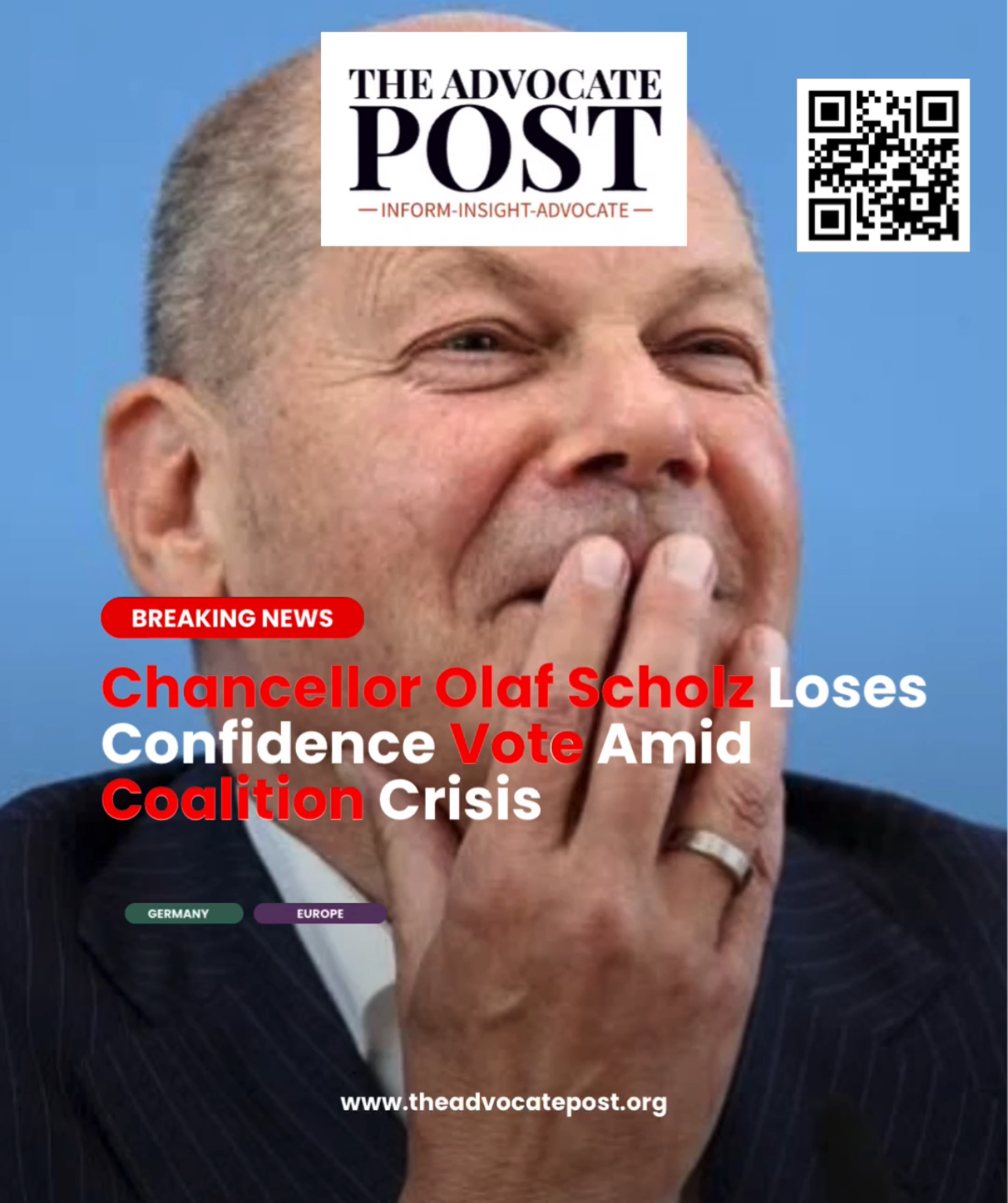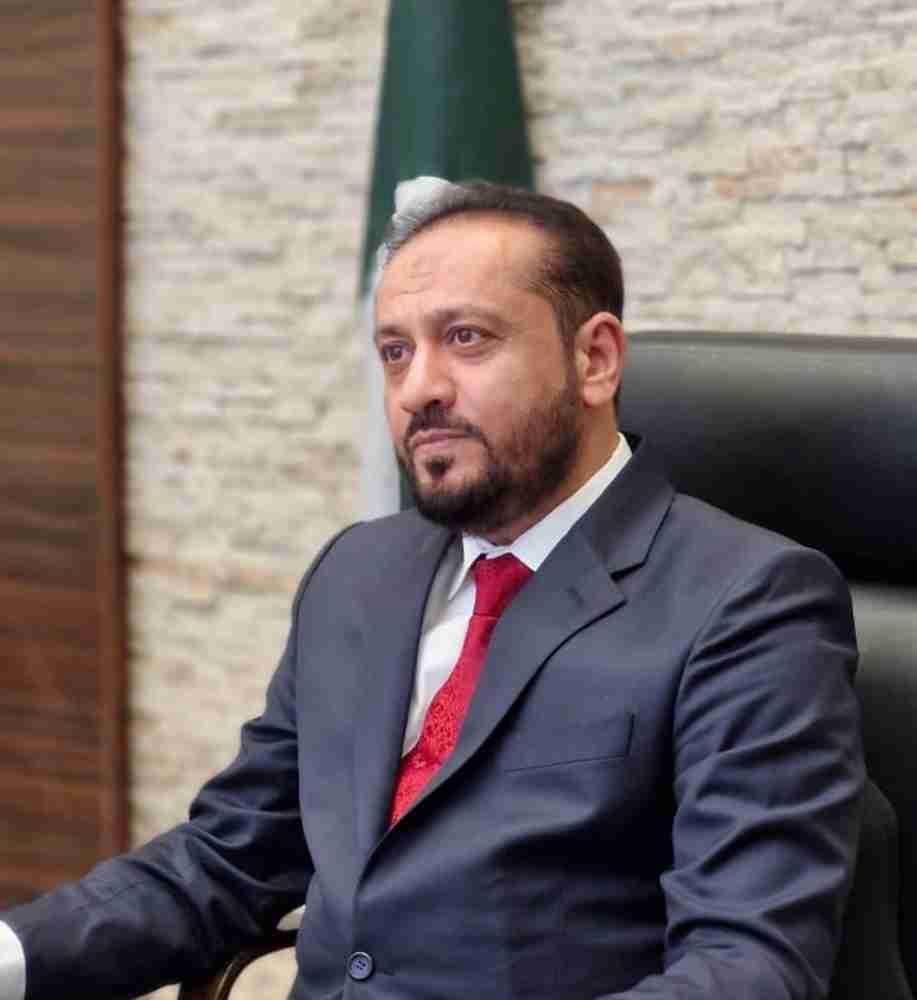News Desk
Berlin: In a dramatic political turn, German Chancellor Olaf Scholz has lost a confidence vote in the Bundestag, plunging the country into political uncertainty. The vote, which marks the collapse of Scholz’s three-party coalition, is expected to pave the way for early elections, set to be held on February 23, 2025.
The confidence vote, held late yesterday evening, saw a majority of members of parliament (MPs) vote against the Chancellor’s leadership, a devastating blow after weeks of escalating tensions within his ruling coalition. Scholz, who heads a coalition government comprising the Social Democrats (SPD), the Greens, and the Free Democrats (FDP), has faced mounting pressure over internal divisions and policy disagreements that have left the government struggling to function effectively.
The Collapse of the Coalition
The turmoil began several months ago, as sharp divisions within the coalition on key issues—ranging from climate policies to economic reforms—intensified. The final straw appeared to be disagreements over fiscal policies and the government’s approach to energy transitions, which increasingly alienated the FDP, the junior partner in the coalition.
“The government’s inability to present a unified front on critical issues has severely undermined public trust,”
said Marco Buschmann, a senior FDP leader.
“It is clear that this coalition can no longer govern effectively.”
Amid growing frustration, several high-profile resignations within the SPD and the FDP further compounded the crisis, leading to calls for a change in leadership.
The Vote and Its Fallout
Scholz, who has held office since 2021, attempted to secure the future of his government in the confidence vote, hoping for a last-minute rally from his allies. However, the vote was a decisive blow, with more than 350 MPs voting in favor of a motion that declared no confidence in his administration. Only 280 MPs voted in favor of the Chancellor.
The defeat leaves Scholz in a precarious position, having no choice but to acknowledge the collapse of his government. In a brief statement following the vote, Scholz said, “While this is a setback, Germany’s future will remain on track. We will respect the democratic process and ensure a smooth transition to new elections.”
The Path to Early Elections
With Scholz’s government now in disarray, the focus shifts to early elections. The Bundestag has set the date for February 23, 2025, marking a decisive moment for Germany’s political future. The upcoming election is expected to be highly contested, with the major parties now scrambling to present alternatives to the current government.
The Christian Democratic Union (CDU), the main opposition party, led by Friedrich Merz, has already positioned itself as a strong contender. Merz, a long-time critic of Scholz’s coalition, called for a “fresh start” for Germany, promising a more stable and efficient government.
“Germany deserves a leadership that can bring the country together, not divide it,”
Merz said after the vote.
Meanwhile, the Greens and the SPD have vowed to regroup and prepare for the electoral contest. Both parties, despite their internal rifts, continue to advocate for climate and social justice policies, which they argue are more relevant than ever in a rapidly changing world.
Impact on Germany and Europe
Scholz’s loss of confidence comes at a particularly sensitive time for Germany and the European Union. As Europe’s largest economy, Germany plays a critical role in shaping regional economic policies, energy transitions, and foreign relations. The sudden collapse of the government has raised concerns about potential delays in key initiatives, especially as Germany navigates ongoing challenges such as the energy crisis, the economic fallout from the Ukraine war, and the push for green energy reforms.
European leaders have expressed concern over the political instability in Berlin. European Commission President Ursula von der Leyen issued a statement expressing confidence that
“Germany will navigate this crisis with the stability and leadership it has always shown.”
For now, Scholz’s administration will remain in place in a caretaker role until the election results are confirmed. The immediate focus will shift to preparing for the campaign and managing day-to-day governance in the interim.
Germany’s political landscape has been irrevocably altered with Chancellor Olaf Scholz’s loss of a confidence vote and the collapse of his three-party coalition. The country now faces a pivotal election in February 2025, which will determine the next government and likely reshape the course of Germany’s future at home and in Europe.
As political parties prepare for the campaign, the key question remains: Will Germany choose stability, or will it turn to new leadership amid a time of uncertainty?





